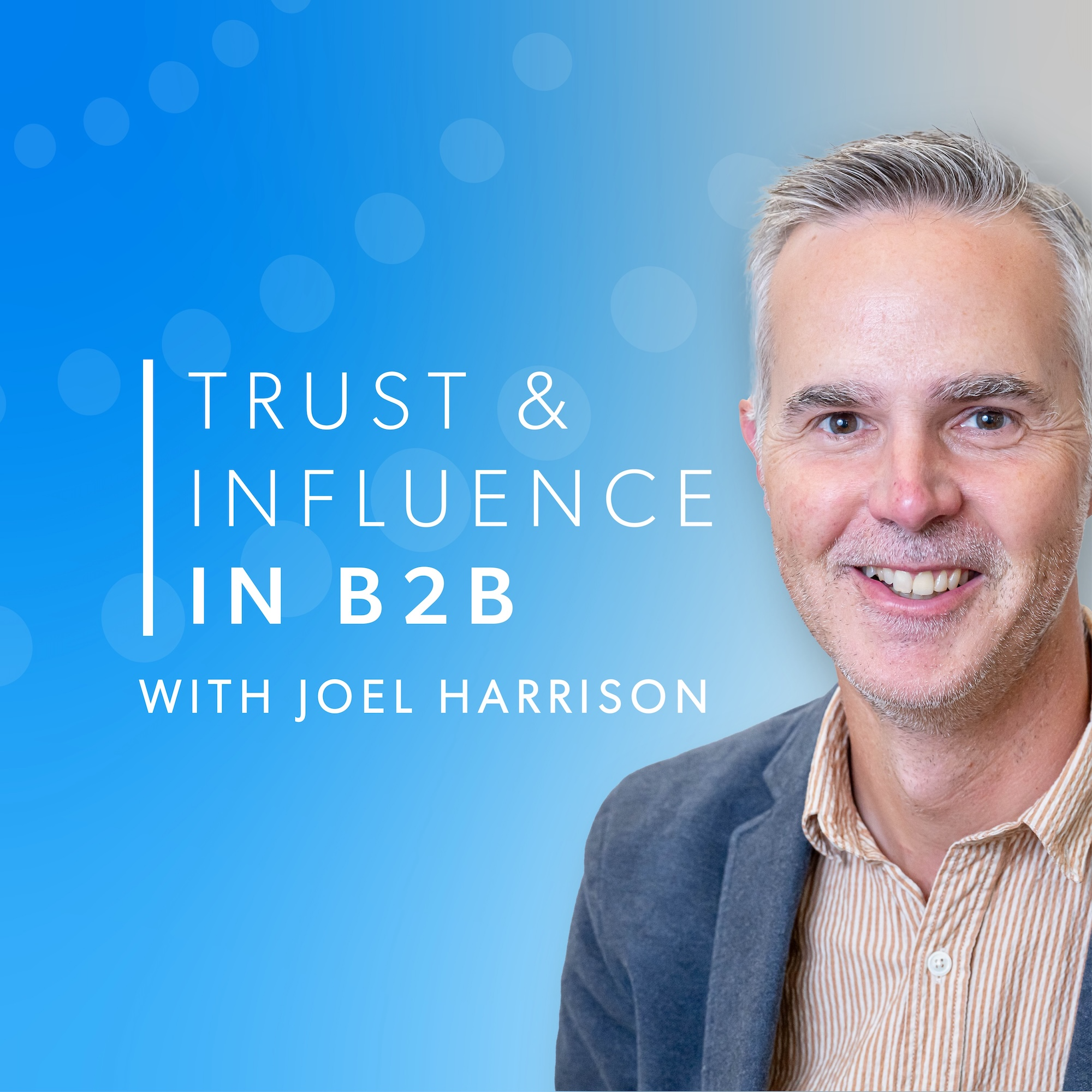Episode 4
Brand Activism and Thought Leadership in B2B: In-depth with Alan Agency's Benedict Buckland
In this episode of the Trust and Influence in B2B podcast, host Joel Harrison speaks with Benedict Buckland, who leads Alan Agency, a B2B brand building agency focused on helping clients in financial services, technology, and professional services sectors. Alan Agency operates at the intersection of thought leadership and advertising, helping brands use the power of brand to provoke change in how audiences think and how industries work. Benedict shares insights from their report "Thought Leadership: A Brand Building Manifesto," which explores what makes a leading brand in B2B and how companies can engage more effectively with their audiences.
Topics Covered
· The role and evolution of thought leadership as a powerful brand-building tool in B2B
· Why being an "activist" brand matters to B2B audiences and how it shapes industry perceptions
· The relationship between provocative messaging and positivity in B2B communications
· The growing credibility and sophistication of thought leadership in the B2B space
· The convergence of brand building and demand generation activities
· The shift toward consumer-grade, high-production value formats for thought leadership content
· Why having a clear brand purpose and long-term vision is essential for effective thought leadership
Key Conclusions
1. B2B Brands as Industry Activists: Benedict's research revealed that 3 in 5 business decision-makers consider "a role in defining the sector" as the most important criterion for being a leading B2B brand—ranking above market share, client list, or heritage. This suggests B2B audiences want brands to be active, not passive participants in their industries: "It's about being an active part of your sector, not a passive part of your sector."
2. Balancing Provocation with Positivity: Effective thought leadership needs to challenge existing thinking while offering constructive solutions. As Benedict explains, "What the value of provocation is... it can be a catalyst. I think if you're going to get people to think differently or to conceptually change their understanding of something, there probably does need to be that initial provocation." However, this must be balanced with a positive, solutions-oriented approach.
3. Purpose-Driven Content: In the increasingly crowded thought leadership landscape, having a clear "North Star" or purpose drives consistency and impact. Benedict distinguishes between "big P Purpose" (social good) and "small p purpose" (having intent and focus in your messaging), noting that the latter is essential for effective thought leadership: "It's about this idea of just having intent behind what you're doing, having a real sort of focus in terms of what it is I want to achieve."
For B2B marketers looking to improve their thought leadership efforts, Benedict emphasizes the importance of clarity and focus: "Don't bury the lead." Marketers should seek to move conversations forward with original insights that are relevant to their audience while maintaining a distinctive brand voice that could only come from their organization.

